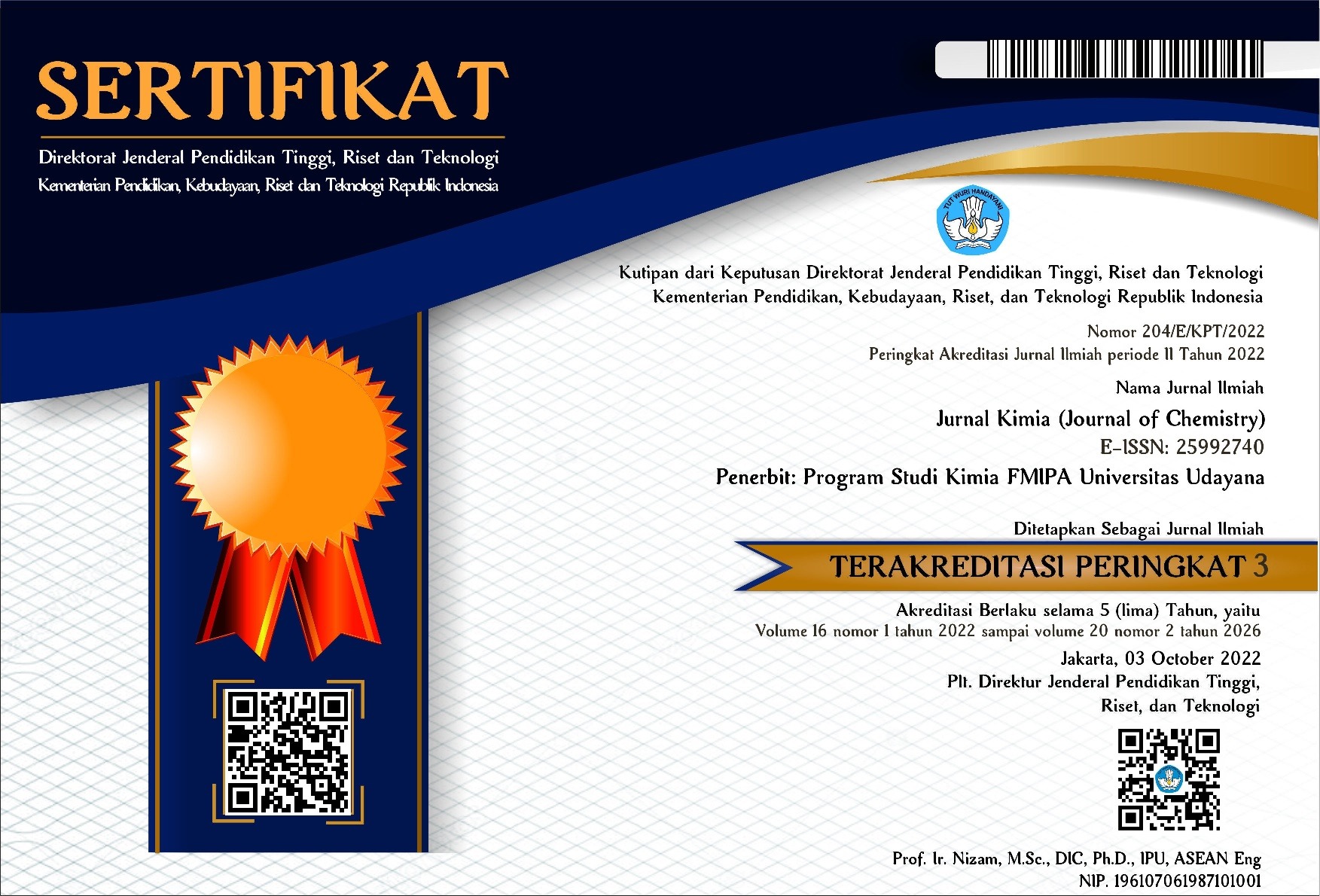SYNTHESIS AND CHARACTERIZATION OF CAO/LM-BASED NANOCATALYST USING LAPINDO MUD AND CALCIUM ACETATE FOR BIODIESEL PRODUCTION FROM WASTE COOKING OIL
Abstract
This study investigates the transesterification of waste cooking oil using CaO/LM catalysts synthesized from Lapindo mud via the wet impregnation method. Lapindo mud was utilized as a catalyst support by impregnating Ca²? ions obtained from calcium acetate dissolved in distilled water at a mass ratio of 2:3. The synthesis process included calcination and milling using a ball mill to produce nanocatalysts. The catalysts were characterized using FTIR (4000–400 cm?¹) to analyze functional groups, XRD (2?: 10–90°) to identify crystal structures, XRF to measure metal oxide concentrations, and PSA to determine particle size distribution based on particle numbers. The transesterification reaction was performed using the reflux method for 2 hours with a methanol-to-oil molar ratio of 9:1, a temperature of 65°C, and a catalyst-to-oil weight ratio of 3:100. The Calcinated-LM (CLM) and CaO/LM catalysts achieved conversions of 75.95% and 93.24%, respectively. These results demonstrate the high efficiency of the CaO/LM catalyst in the transesterification process, highlighting its potential as an eco-friendly catalyst alternative for biodiesel production from waste cooking oil.
Downloads

This work is licensed under a Creative Commons Attribution 4.0 International License





